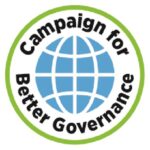It doesn’t seem very long ago that the industry was left reeling from the announcement Neil Woodford is making a comeback.
Many, many column inches have been dedicated to denouncing the decision.
But it’s unlikely that the almost universal disapproval will have much impact. Provided there are no legal or regulatory roadblocks – what is there to stop Woodford from re-entering the industry?
The question then becomes – who will be brave enough to work with him?
It is a question of even more importance given the fallout from the recent collapse of US family office Archegos Capital Management.
Especially since this is not the first time that the firm’s founder, Bill Hwang, has crossed swords with the US Securities and Exchange Commission.
There is a considerable gulf between the questionable conduct of one (Woodford) and the illegal actions of the other (Hwang). But somebody had to make the decision to work with Hwang again, fully in the knowledge of his past actions, which were widely reported.
In a post-global financial crisis world, that level of risk was deemed acceptable – a decision that has come back to haunt some of the biggest financial institutions in the world.
Leopards and spots
Hedge fund manager Sung Kook ‘Bill’ Hwang was charged by the SEC in December 2012 with “conducting a pair of trading schemes involving Chinese bank stocks”.
He made $16.7m in illicit profits by committing insider trading and short-selling three Chinese bank stocks based on confidential information received in private placement offerings.
Hwang pleaded guilty; and he and his firms, Tiger Asia Management and Tiger Asia Partners, paid $60m to settle the charges – involving a $44m fine plus disgorgement.
At the time, Robert Khuzami, director of the SEC’s division of enforcement, commented: “Hwang today learned the painful lesson that illegal offshore trading is not off-limits.”
In December 2013, the Hong Kong Securities and Futures Commission ordered Tiger Asia Management, Hwang and another senior officer, Raymond Park, to pay nearly HK$45.3m to investors affected by their insider dealing.
The following year, he was banned from trading securities in Hong Kong for four years.
But fast-forward less than a decade and Hwang is at the centre of a collapse that has triggered an SEC investigation and hit the balance sheets of some of the largest financial institutions in the world.
So, how did this fallen star blaze back to life?
What happened?
In 2013, Hwang converted his hedge fund into a family office, which are a lot less regulated, and rebranded it Archegos Capital Management.
He managed his own money in the early years before re-establishing relationships with the likes of Nomura, Goldman Sachs, Morgan Stanley and Credit Suisse, among others, which acted as prime brokers for Archegos, according to Reuters.
His strategy involved buying total return swaps, bets which he amplified through considerable leverage. At one point, he held stock positions worth more than $50bn but only had about $10bn in his fund, sources told Reuters.
Hwang’s success came to a crashing halt in March 2021, however, when the value of one of his holdings, Viacom, dropped sharply. This triggered margin calls from the banks, which the firm could not afford to meet.
The lenders were then forced to sell their positions.
Losses have been estimated at anywhere between $6bn and $10bn, of which roughly $4.7bn is thought to have been incurred by Credit Suisse because it failed to act as quickly as the other banks in selling out of its positions.
It is expected to push the Swiss bank into a Q1 loss of about CHF 900m.
Japan’s Nomura is also reported to be facing a financial hit in the billions of dollars.
Doomed to repeat the same mistakes?
Arguably one of the more tedious phrases rolled out after an ‘incident’ of any severity is that ‘lessons will be learned’.
Arguably, those lessons should have been learned in 2012 when Hwang pleaded guilty to insider trading, or 2014 when he was banned from securities trading in Hong Kong for four years.
But he was successful.
He bet heavily on technology and media stocks and delivered consistently high returns using his risky strategy of highly-leveraged total return swaps.
Until the house of cards came crashing down and investors got their fingers burned.
According to reports, it took him several years to come back from the wilderness. But somebody at these institutions had to be responsible for vetting Hwang as a client. Someone, surely, had the role of overseeing the level of risk he was undertaking.
Bad years, poor performance and losses are par for the course when it comes to investing. Several years of underperformance should not spell the end of a fund or sound the death knell on a career.
But maybe more questions need to be asked of funds and managers that are consistently doing so well – especially if they have an established history of playing outside the rules.
Editor’s Note: In association with our sister publications, Expert Investor has launched a Campaign for Better Governance.
It will see us shine a spotlight on investment companies as well as the businesses in which they invest.








